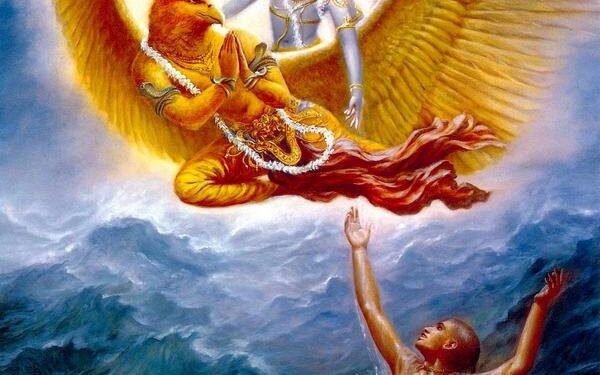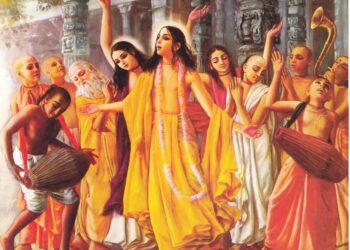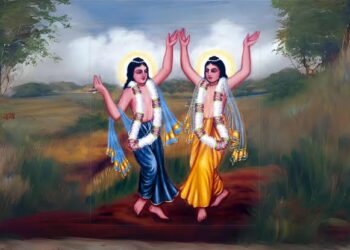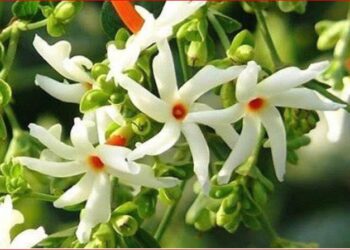1.109.19. He who has no friends, relatives or kinsmen to advise him and he who has no intrinsic intellect in himself suffers certainly. How can a wise man pursue that activity which does not produce any tangible result even when completed successfully but which necessarily ushers in great sorrow when left incomplete?
1.109.20. One should leave off that land where no one honours him or loves him; where there is no kinsman, and where there are no amenities for higher learning.
1.109.21. Earn that wealth to which there is no danger from kings or robbers and which does not leave you even after your death.
1.109.22. The wealth that a man acquires by putting in exertions risking his own life is divided among themselves by his successors after his death. Only the sin that he commits in his eagerness to earn remains his exclusive property.
1.109.23. Amassed and deposited wealth of the miser is ransacked by others frequently like that of the mouse and is conducive to sorrow.
1.109.24. Beggars roaming the streets, naked, grief-stricken, rough and armed with broken bowls point out to the world that the fruits the non-charitable persons reap are like these.
1.109.25. O misers! The beggars who request you saying “Please give” really teach you that this is the result of not giving. Do not become like them.
1.109.26. A miser’s hoarded wealth is not being employed in hundreds of sacrifices (e.g. for good purposes) nor it is being given in charity to the deserving; but in the end, it is utilised in the houses of robbers or put in the king’s treasury.
1.109.27. The wealth of the miser does not go unto the deities, brahmanas, relatives or to himself but it goes unto the robbers or kings or is consumed by fire.
1.109.28. Let those riches be not thine – the riches acquired with great deal of toil, by transgressing the curbs of virtue or by falling at the feet of the enemy.
1.109.29. A blow of destruction to learning is absence of practice; wearing rags is a blow unto the goddess of wealth; eating after digestion is a blow to sickness; and craftiness is a blow to the enemy.
1.109.30. A fitting punishment to the thief is the death sentence; being reserved is the best punishment for a false friend; lying on a separate bed is a punishment for women, and non invitation in sacrifice is a punishment for brahmanas.
1.109.31. Wicked persons, artisans, slaves, defiled ones, drums and women are softened by being beaten; they do not deserve gentle handling.
1.109.32. By sending them on errands the ability of servants can be known; sincerity of kinsmen can be known by their behaviour during our adversity; the genuine friendship can be understood when some mishap occurs and the fidelity of the wife is known when one’s fortune dwindles.
1.109.33. The diet of a woman is twice as much as that of a man; shrewdness four times, energy is six times and amorousness is eight times as much as that of a man.
1.109.34. It is impossible to overcome sleep by sleeping it off; to overpower a woman by loving her; to smother a flame by adding fuel and to quench thirst by drinking wine.
1.109.35. A delicious fatty meat diet, pleasing dress, glowing wine, fragrant scented pastes, and sweet smelling flowers kindle passion in women.
1.109.36. It can be said with certainty that even during the period of celibacy the god of love is busily active. On seeing a man pleasing to her heart the vagina of a woman becomes wet with profuse secretion.
1.109.37. O Saunaka, it is true, definitely true that the vaginal passage of a woman begins to secrete profusely on seeing a well dressed man whether a brother or a son.
1.109.38. Rivers and women are of similar nature in their love of freedom to choose their own course. The rivers erode the banks and the women undermine their own families.
1.109.39. The river undermines the banks and the woman causes the fall of the family. The course of rivers and women is wayward and cannot be checked.
1.109.40. A blazing fire cannot be satiated with sufficient supply of fuel; the ocean can never be filled to satiety by rivers flowing into it; the god of death is never satiated by the living beings (whom he smites) and a passionate woman is never satiated with man.
1.109.41. It is impossible to be satiated with the company of good men, friends, men of delightful conversation, and pleasures, sons, life and boons.
1.109.42. A king is never gratified with his ambitious activity of amassing wealth; a sea is never gratified with a perennial flow of water into it; a scholar is never satiated with the talks and speeches given by him; no layman’s eye is satiated with the glimpses of the king that he gets.
1.109.43. They maintain themselves by what they earn by doing their duties; they are devoted to the sacred scriptures; they are fond of their own wives; they have subjugated the unreasonable wanderings of the sense organs; they are delighted in serving guests; they attain salvation at their very doors; they are the excellent among men.
1.109.44. If the wife is after your heart, if she is attractive, well bedecked and delightful, if you live in your own house; it is heaven indeed which can be obtained only by good deeds performed in previous birth.
1.109.45. Women are incorrigible; they can never be brought round by making a gift, or offering respect, or a straightforward dealing, or repeated service. They can neither be threatened with a weapon nor asked to be quiet by citing scriptural codes.
1.109.46. Five things should be pursued slowly and cautiously. Learning, riches, ascending to mountain, amorous approach to women, and assimilation of virtuous conduct.
1.109.47. Worship to gods is of permanent benefit; a present to a brahmana leaves a permanent blessing behind; a thoroughly good learning has an everlasting beneficent result and a good bosom friend is a permanent asset.
1.109.48. Those who have not acquired enough learning during studentship and those who have not secured a decent wife and sufficient wealth during youth are to be pitied forever. They are no better than beasts, but have a human form.
1.109.49. A person devoted to the scriptural codes shall not worry over the meal. He must ponder over a regular study. A man seeking knowledge must be prepared to go a long way with the speed of Garuda.
1.109.50. Those who had been unmindful of studies during studentship and those who had wasted their wealth during youth in pursuit of lust fall into a miserable plight during old age slighted by others and burning within like the lotuses in the winter season.
1.109.51. Arguments are never stable and irrefutable; Vedas are wide and varied; there is no sage who has not mentioned something different from others. Still the central theme of virtue is hidden in a cave, as it were. Hence, the path traversed by great men should be taken as the correct one.
1.109.52. The inner workings of a man’s mind should be inferred from his facial reflexes, behaviour, gestures, movements, speech and the contractions and distortions of his eyes and lips.
1.109.53. A spoken word is understood by even a beast. Horses and elephants carry out the orders given. But a scholar infers what is not expressly stated. Intellect is fruitful in being able to comprehend others’s gestures.
1.109.54. Deprived of wealth one should go on a pilgrimage; going astray from truth one cannot but fall into the hell Raurava; though failing in the initial attempt in the yogic practice one shall continue to be strictly truthful; a king divested of his royal splendour has no other alternative but go a hunting.
Suta said:
1.110.1. If a person forsakes things of sure results in his pursuit of things of uncertain results he loses both – the certain as well as the uncertain.
1.110.2. No thrilling pleasure is felt by a man bereft of the mechanism of speech though he may be learned as in the case of a coward holding the sword in his hand or of a blind man wedded to a beautiful wife.
1.110.3. It is the fruit of no small penance to posses both delicious foodstuffs and good appetite; sexual virility and healthy as well as handsome wives, extensive wealth and desire to give it to others.
1.110.4. The aim of the study of Vedas is the ability to perform Agnihotra; everything auspicious should have the invariable results of good conduct and purposeful life; a good wife must yield perfect sexual pleasure and good offsprings and wealth is for both charity and personal enjoyment.
1.110.5. An intelligent man should marry a girl of noble family though not very beautiful; he shall not marry a girl of low descent though she may be beautiful and have developed hips.
1.110.6. Of what avail is the wealth which brings disaster in its wake? Who will dare to remove the crest jewel of a serpent embedded on its hood?
1.110.7. Butter for sacrificial purposes can be taken even from the family of wicked persons; a wise saying uttered by even a child should be listened to; gold can be taken even from the heap of rubbish and a jewel of a girl [stri-ratna] can be brought even from a mean family.
1.110.8. Nectar may be taken from even a poison-infested spot; gold can be taken even from a heap of rubbish; good learning may be received even from a mean-minded person and a girl of low parentage can be wedded if she has good qualities.


















